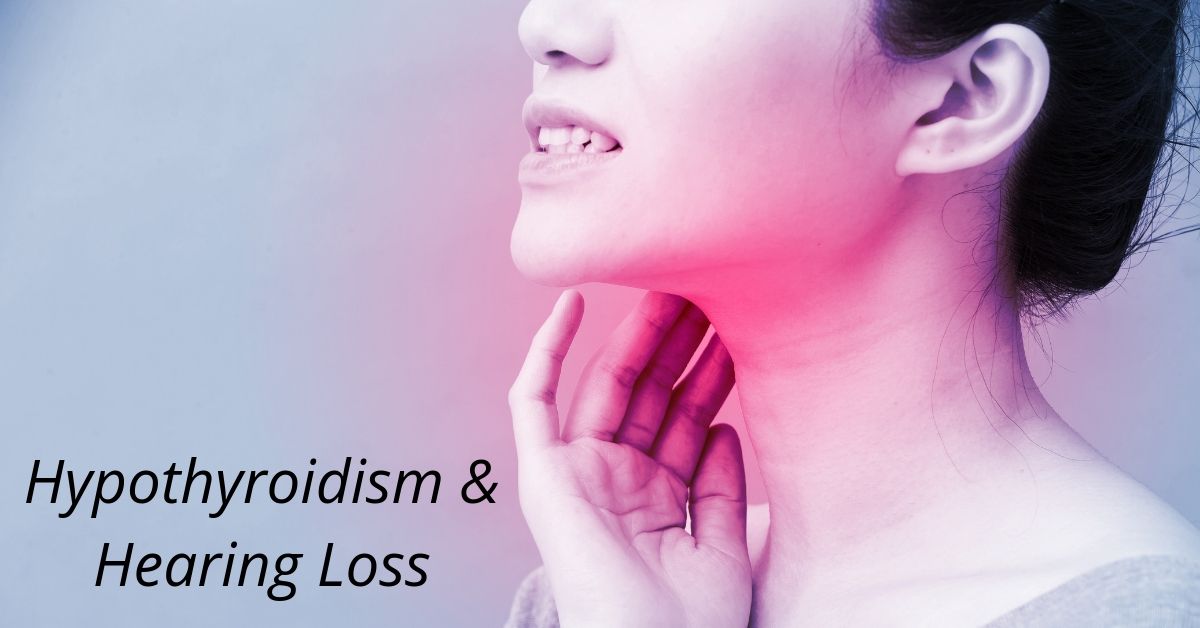All About Bluetooth Hearing Aids
Do you remember the hearing aids your parents or grandparents used to

By: admin | July 19, 2019
Have you been struggling with a thyroid disease? Roughly 20 million Americans have a thyroid disease, but over half of these adults don’t realize there’s anything wrong, or have attributed their symptoms to some other illness or disease. Not only does hypothyroidism affect energy levels and lead to fatigue, it’s also associated with hearing loss, and if your thyroid isn’t functioning properly, your hearing could be suffering.
The thyroid is a very important gland that’s in charge of regulating your body’s metabolism, as well as dictating how and where you use your energy. This affects many of your body’s systems, from energy levels and fatigue to weight regulation and heart function. Your thyroid is a butterfly-shaped gland in the front of your neck, just below the Adams apple. When your thyroid is functioning normally you won’t be able to feel it, but if your thyroid is swollen, you’ll feel the swelling in your neck and you should get it checked as soon as possible. The thyroid can either over-produce or under-produce hormones, and both will affect your body in profound ways.
Hyperthyroidism: When your thyroid is over-active it produces too much thyroxine hormone. This is known as hyperthyroidism, and all these extra hormones in the body create a lot of problems. Symptoms of an over-active thyroid can include nervousness, weight loss, insomnia, irritability, vision disturbances, and weakness in the muscles. Hypothyroidism: An under-active thyroid doesn’t produce enough thyroxine, and this is known as hypothyroidism. Common symptoms include weight gain, forgetfulness, depression, heart problems, and fatigue. Goiter: When you experience swelling in your thyroid gland it’s known as Goiter. This can be a harmless swelling that will go away on its own in a few days, or it can become a painful condition that affects your breathing or interferes with your ability to swallow. Thyroiditis: Another thyroid disease is Thyroiditis, a condition where the thyroid swells as a result of an infection or illness. This is often a painful condition, and the swelling will make the symptoms of your illness seem more acute. The symptoms of thyroid diseases are often confused with the symptoms of other conditions, and both hyperthyroidism and hypothyroidism can go unnoticed for years. If any of these symptoms sounds familiar, visit your family physician to perform a test on thyroid function, and rule out a thyroid disease as the cause of your health problems.
Researchers have been investigating the links between the thyroid and your hearing. Those with a thyroid disease, particularly hypothyroidism, seem to have worse hearing health than those with normal thyroid function. It’s estimated that half of people with a thyroid disease have some hearing loss, so if you’ve been suffering from hypothyroidism for years, you’ve been jeopardizing your hearing health. When your body suffers from an under-production of the thyroxine hormone, your metabolism slows, and your body functions slow down as well. You don’t have enough resources and energy for all the functions you need to perform, and this could affect your hearing. Your heart, brain, and ears all work slower than usual, and you’re likely to experience reduced blood flow to the ears, more damage to the cells in the ear, and a harder time hearing, particularly in places with a lot of background noise where your brain has far more sounds to sort through. If you have hypothyroidism, you’re also more likely to experience tinnitus, that annoying ringing or buzzing in your ears you only hear when everything around you is very quiet. Vertigo also affects those with an under-active thyroid, and you may have noticed that you struggle to keep your balance.
If you’ve noticed any of the signs of a thyroid disease, visit your physician as soon as possible to seek treatment. Then, visit us at Orange County Physicians’ Hearing Services to look after your hearing health and explore your treatment options. We’ll test your ability to hear both high and low sounds, and discover which sounds are too soft for you to hear. Together we’ll find the perfect devices that will have you hearing clearly in every listening environment.

Do you remember the hearing aids your parents or grandparents used to
By: admin | August 7, 2022

Do you ever find yourself at the end of a long day only to be confronted
By: admin | August 7, 2022

How Common is Hearing Loss Many people might be shocked to learn how
By: admin | June 22, 2022
